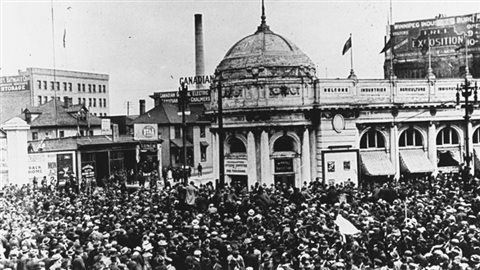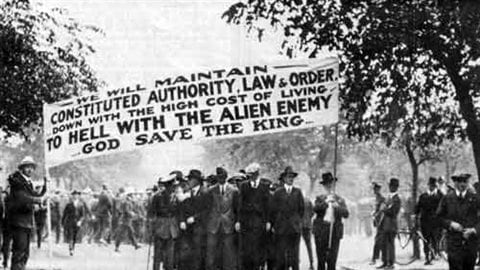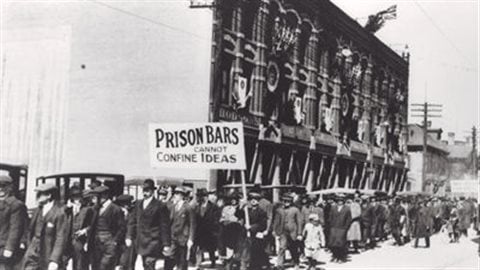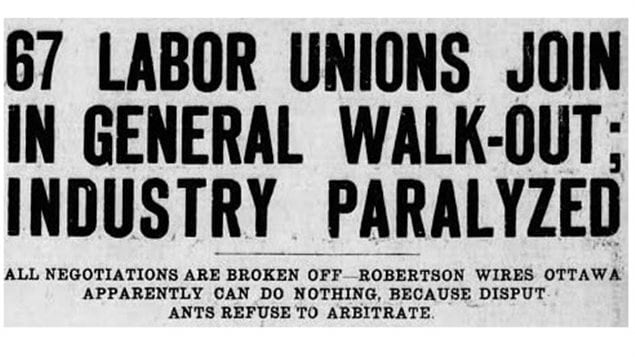May 15, 1919 was a Thursday. At 11;00 AM the western city of Winnipeg was paralysed as between 20 and 30-thousand worked walked out in a general strike. It had been brewing for months.
When Canadian soldiers began returning home from the First World War by the tens of thousands, they found that the bright future they had fought and so many had died for, was not to be found.

They returned instead to find many factories closed, and of the jobs remaining, many were filled by someone else, including immigrants who had escaped earlier from Europe. Inflation was adding fuel to the discontent making it tough even for those who had work.
Earlier that year in the city, contract talks between management and the building and metal workers council, a collective of unions, broke down. Talks with individual unions had not been fruitful, and they joined the collective which was rejected by management as a negotiating unit.
The Unions called for a general strike to seek better working conditions, better wages, and the whole principle of collective bargaining. Response was immediate. Public sector workers; postal workers, telephone operators, firemen, waterworks and others joined in. The police had voted to join but actually stayed on the job, until they were fired for not signing a document saying they would not strike.
At the same time, opposition from manufacturers, bankers, and politicians grew.

The Russian revolution of 1917 was still fresh in everyone’s minds and politicians began to become very nervous. Newspapers which had lost many workers took a hard line and began calling the strikers, “alien scum” and that it was orchestrated by “Bolsheviks” and “anarchists” and revolutionaries and ran cartoons of people throwing bombs.
The mass strike in the city however was completely peaceful at first as the majority of strikers were simply for reform of the system, not to destroy it and replace it.

The strike however was causing a ripple effect among the population across the country, and the federal government, spurred on by exaggerated allegations by the local elite opposition became increasing nervous as the strike continued from days into weeks,
The federal govt through special constables and the federal Northwest Mounted Police ordered the arrest of eight strike leaders on June 17.
On June 24 a crowd of about 25,000 supporters gathered in the city centre, where frightened officials called in the federal police who charged the workers on horseback and with clubs and guns.
One worker was killed outright, another died later of his wounds. And many were arrested in the event known as “Bloody Sunday”
The later Royal Commission which investigated the strike concluded that the strike was not a criminal conspiracy by foreigners and suggested that “if Capital does not provide enough to assure Labour a contented existence … then the Government might find it necessary to step in and let the state do these things at the expense of Capital.”
Although the government ordered violence broke the strike, the bitterness lingered for years.
The 40 –day strike became the biggest and longest of several labour strikes that year as workers all sought the same thing: better conditios, wages, and negotiation rights.
Three jailed strike leaders in Winnipeg were later elected to Parliament as the Independent Labour Party. This later merged with the newly formed socialist Co-operative Commonwealth Federation, (CCF) which itself eventually morphed in 1961 into the present day New Democratic Party.







For reasons beyond our control, and for an undetermined period of time, our comment section is now closed. However, our social networks remain open to your contributions.